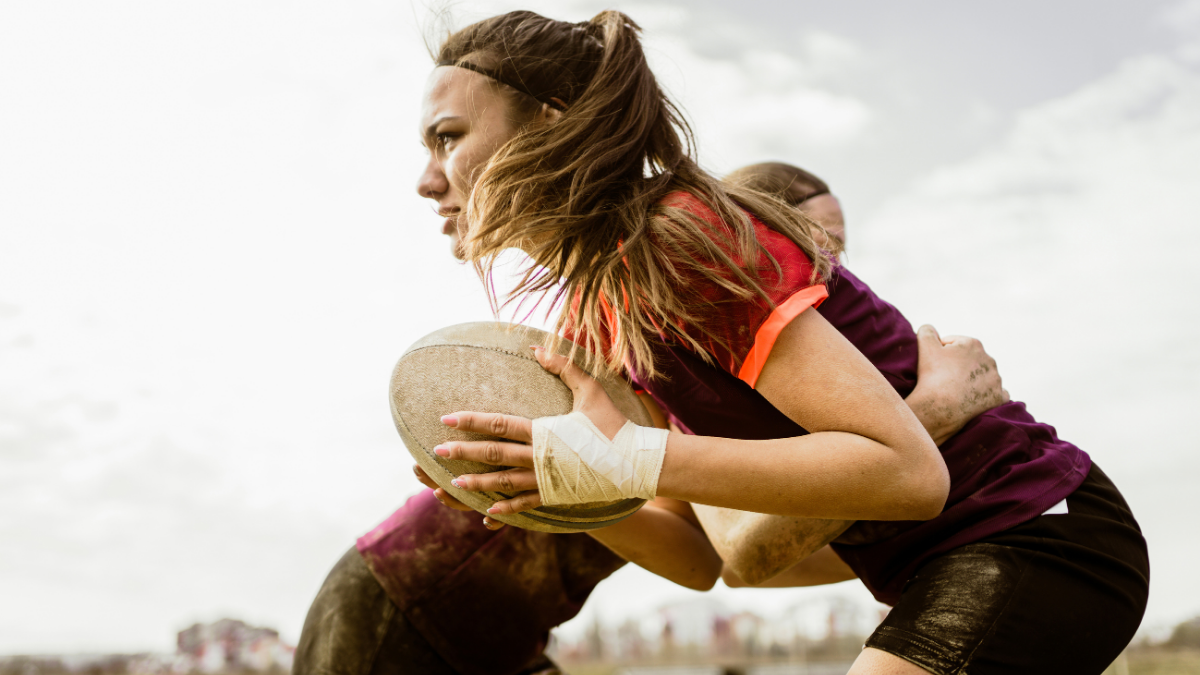I’m loath to open with “we’re in a state of change”, because not only is change constant, but the acceleration of the rate of change is also ever increasing.
However, within the worlds of sports, marketing and culture, something more exciting is happening: the shifts are aligning.
That alignment has created a gap. Contested exists to be the bridge between how things used to work, and how they need to work. Both for now and the future. We’re creating the right environment for previously overlooked athletes to be the front runners of these changes.
Marketing is entering a new era
I’ve heard people say search is in decline, based on the common belief that AI-chatbots have displaced search engines like Google, but I’m struggling to find much evidence to support this. People don’t (yet) search for products or services in ChatGPT, and wouldn’t google “help me make this email draft more concise”. The introduction of AI has, however, changed how results are displayed in Google. Where previously sponsored posts were front and centre in search results, they’re now buried a few scrolls down, making way instead for the AI-generated summary and links. As a result, people are clicking less on search ads, and SEO’s ROI is plummeting. The decline is predicted to cost publishers up to $2bn per year in lost ad revenue, and traditional search volume to drop by 25% by 2026, forcing businesses to rethink how they spend their marketing dollars.
Visibility can no longer be bought through keywords and clicks alone. It has to be earned through people. Through influence. Through culture.
Social media isn’t just media anymore, it’s the new storefront. The digital high streets where people go to find, or happen-upon, products. It’s where they go to discover, evaluate, and decide. This is especially prevalent among the younger generation, who are far more likely to buy based on someone they follow than what they see in a display ad. Almost 57% of Gen Z is likely to purchase a product based on an influencer’s review.
But it’s not just about channel shifts. It’s also about trust. Traditional influencer marketing is losing its edge]. People are over the #ad spam, and obvious logo displaying of a product the influencer would never use. When brands interrupt culture in this way, it’s off-putting and damages the brand and the influencer.
Participation beats placement. Instead of interrupting culture, brands need to be part of it. Leveraging influence through partnerships, not placements, to participate.
At Contested, this is core to how we think about brand engagement. Not ads, but alignment.
The power of niche and the rise of community-led culture
We’re in a golden age of micro-culture. An anti-celebrity era. Where belonging matters more than mass appeal.
Smaller audiences are often a better fit (both for budget and impact) than those with millions. Campaigns using micro-influencers yield 60% higher engagement and 20% higher conversion rates than macro. The smaller the audience, the closer the community, and the more direct their relationship. To use a sports example, as one of LeBron’s 160 million followers, you might engage, but you don’t know him. He’s a legend, but also a stranger. Now imagine you’re one of 5,000 following your college classmate turned women’s rugby hero. You’ve passed them on campus, laughed with mutual friends, maybe even met their parents. That connection feels real. And when something feels real, it carries trust, and trust carries influence.
We’ve moved past the mass-media approach of yester-year, where impact is driven by broad, blunt scale (think billboards and TV ads). Attention spans have dwindled, and attention has fragmented as the choice of content to consume has exploded. Families and friends used to gather around the radio, or single TV. Attention today is scattered across thousands of channels, platforms, subcultures, and communities. 75% of people now multitask across multiple media formats, with social media users focused on what they’re viewing 10% of the time
This fragmentation of attention has been hailed a threat, but at Contested, we see it as a massive opportunity.
Sport is evolving, too
Sport is one of the few remaining shared cultural rituals we still show up for, live. Hours of attention, loyalty, and emotion. More recently, off-pitch content through behind the scenes documentaries on streaming channels, endless fan-cut highlight reels, and athlete vlogs. The content is endlessly fresh, and it writes itself. The ATP recently reported its tennis players’ combined social media following growing 10% in one year to 168m, generating 3.8bn impressions. Yet, because of the traditional gatekeeping of sports agents, 99% of athletes aren’t being identified as brand-partners. It’s not just a missed opportunity to harness some of the attention on sports, it’s a market failure.
What’s happening in marketing is being mirrored in sport. Growth isn’t coming from the big leagues, it’s coming from the fragmented edges. Women’s sports are booming; the NCAA women’s basketball championship saw a 103% increase from the previous year’s final, with almost 10m US viewers. Non-traditional sports are building devoted fanbases. College and semi-pro athletes and especially athletes of colour are getting more attention than ever, without million-dollar contracts and big media deals.
That’s why we focus on niche athletes. The rugby players, the track stars, the Olympians and Paralympians, the college athletes, the professional women, the list goes on. The ones who have been deemed non-commercially viable because they don’t have an agent. Who have been underfunded and underexposed for decades. The athletes who don’t just compete, but who connect.
Athletes are an under-used way for brands to participate in culture. They bring trust, authenticity, and stories. Not polished content machines, but real people, doing extraordinary things. Their followers are part of their journeys, the wins and losses, the setbacks, their rises to stardom. And the data backs this up. Content from athlete-led campaigns have seen up to 7x ROI for brands. It’s not a nice-to-do, it’s a combination of credibility with content that drives powerful results.
The opportunity is clear, the attention exists, and is growing, but the commercial value hasn’t caught up, and the infrastructure isn’t in place. That’s the space Contested is filling. We’re not about turning athletes into influencers, or perpetuating the problem where followers means deals, or success = stardom. We’re giving them the tools to be commercially viable, without having to compromise focus on their sport.
We understand that for most athletes, creating TikToks for brands isn’t the dream. Competing is. Being an athlete is. We make sure they can keep focus on that, without being at a financial disadvantage.
Business are ready, but need help
The demand is there. Businesses want to participate in the new economy, they see where their kids’ attention is, they grew up themselves where influence increasingly drives purchases. But they don’t have $500k to make a superbowl ad, and aren’t interested in another inauthentic influencer collaboration.
Big agencies, long lead times, massive budgets, fluffy deliverables. The current system is built for the few. Everything else in marketing has gone agile, digital, fast, and iterative. Contested is dragging that evolution to the sports world. Not just moving athlete marketing online, but future proofing it with AI-powered tools and machine learning. We continuously learn what works to improve every next campaign, and deliver marketing with a feedback loop, not a one-and-done contract.
Contested: A new category, built for the future
These aren’t just trends. This is a category shift. The old system doesn’t serve the next generation. We’re building the infrastructure to support the future of community-driven marketing, the athletes; and providing the platform that makes it possible to play at scale.
Contested sits at the intersection of three unstoppable movements:
- Marketing is changing: visibility is no longer about budget, it’s about trust and timing
- Power of community: big numbers don’t mean big impact, influence is going niche - smaller audiences drive deeper relationships and better results
- Sports evolution: talent is everywhere, and attention is no longer concentrated on the big-leagues, but the commercial infrastructure hasn’t caught up
We help businesses unlock the value of athlete-led campaigns without the overhead, confusion or inefficiencies of traditional athlete-sponsorship models. This isn’t about slapping a logo on a jersey and hoping for the best. It’s about precision-matched partnerships, creative execution, and performance-driven results.
So that sports can be a viable career for all athletes with the talent to compete, not just the ones with the commercial backing.
So that brands can be part of culture, not interrupt it.
And the future of marketing isn’t about who has the biggest budgets, but who has the smartest partnerships.
Contested is one of the ventures we’re building at The49 to shape the future of culture-led innovation. Visit contested.com for more info, or reach out to work with us here.


